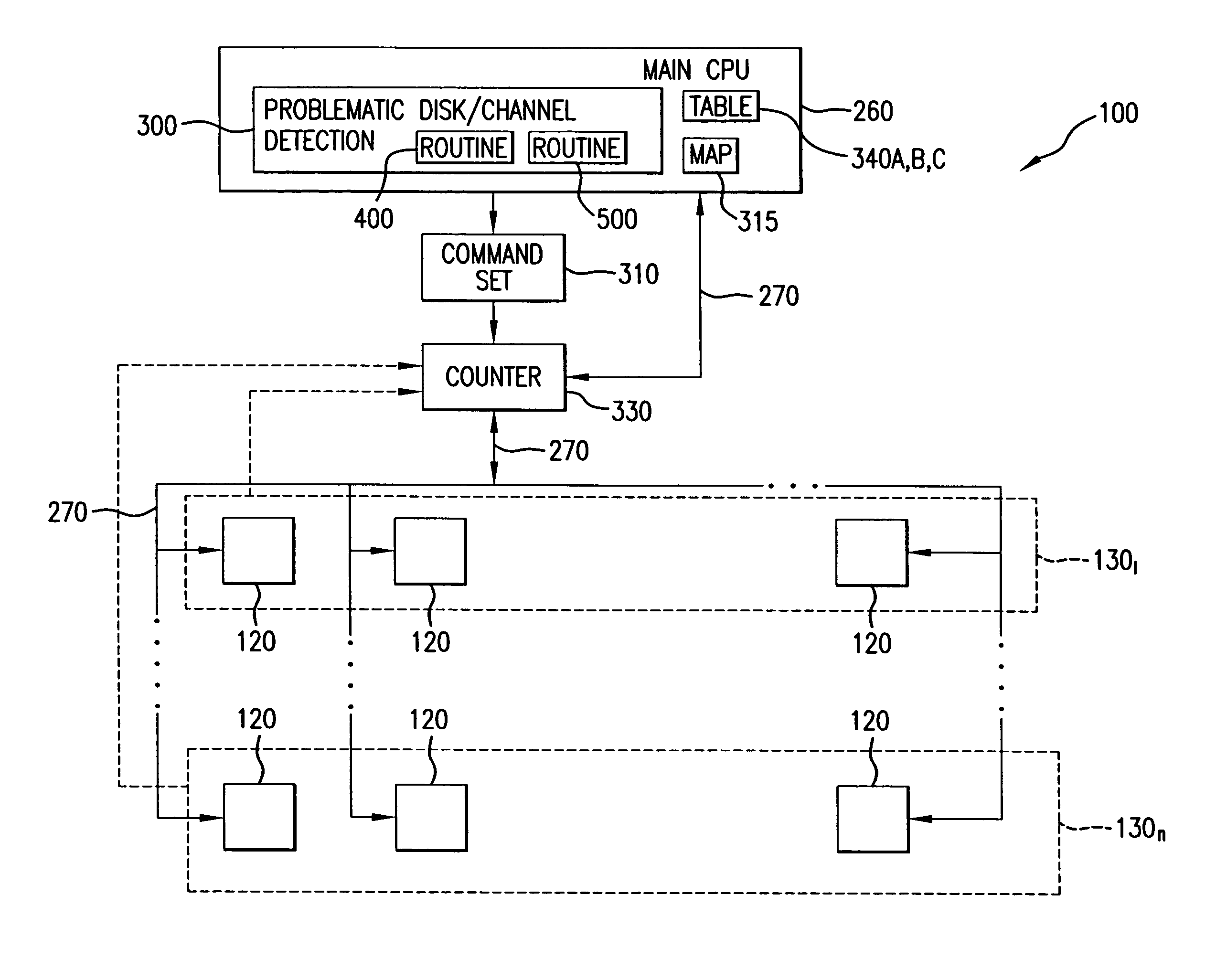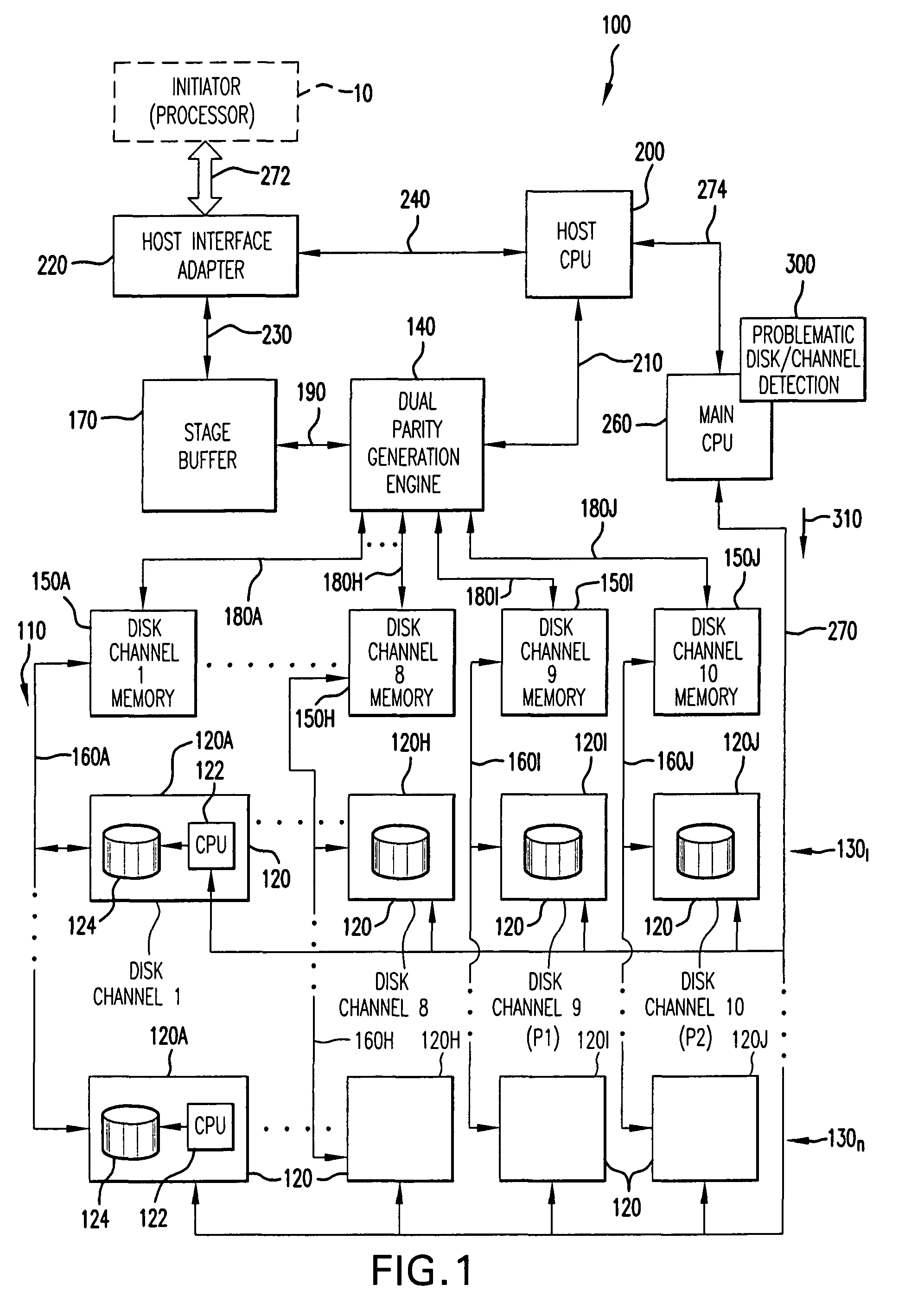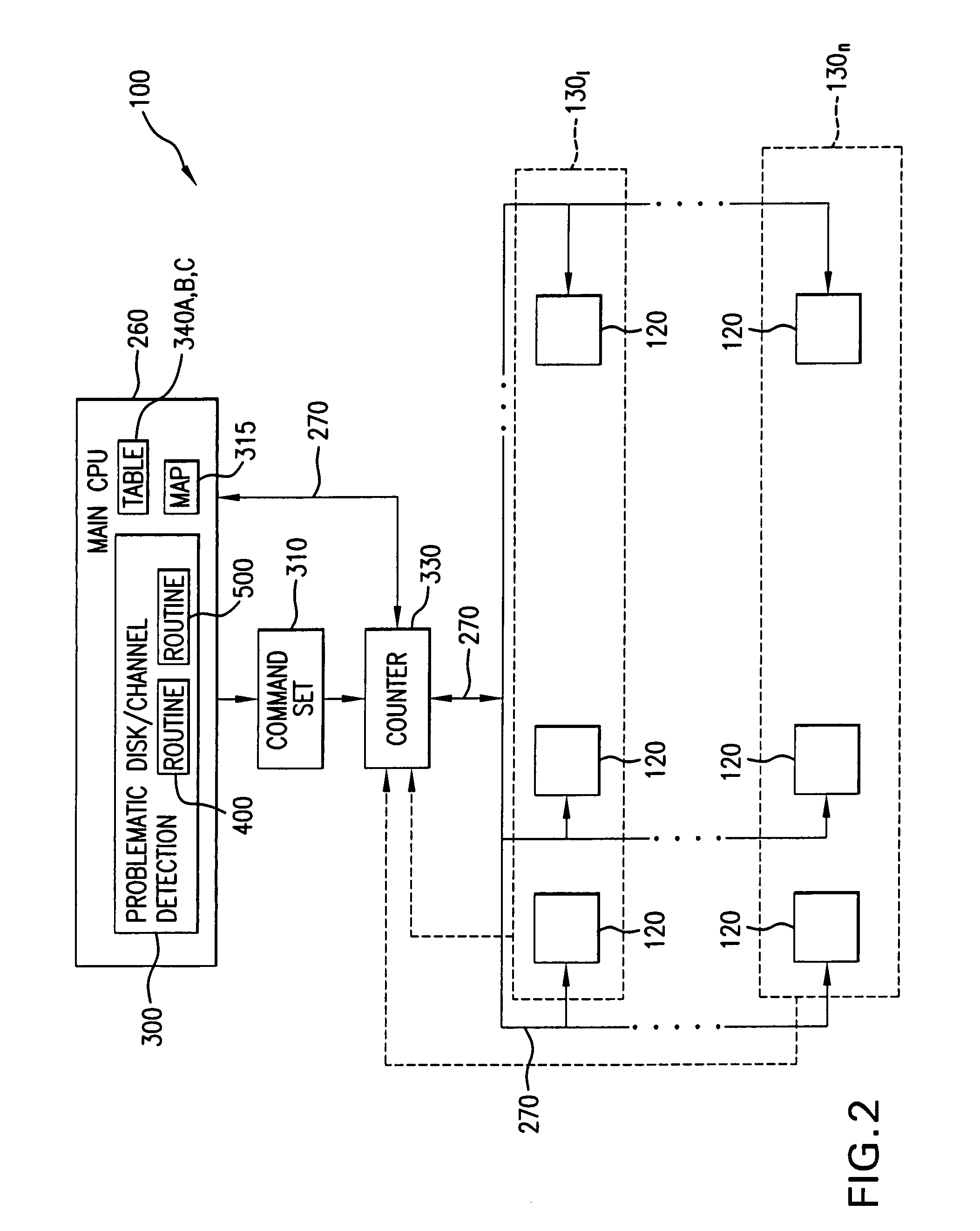Method for detecting problematic disk drives and disk channels in a RAID memory system based on command processing latency
a command processing and disk drive technology, applied in error detection/correction, instruments, computing, etc., can solve problems such as failure of disk drive mechanisms, failure of electrical components such as motors and servos, and disk drives may degrad
- Summary
- Abstract
- Description
- Claims
- Application Information
AI Technical Summary
Benefits of technology
Problems solved by technology
Method used
Image
Examples
Embodiment Construction
[0033]Referring now to FIG. 1, there is shown memory system 100 for storing and retrieving data for use by one or more processors (initiators) 10. Although not restricted to any particular redundant array of independent disks (RAID), the capability of the memory system 100 to detect problematic disks is illustrated herein in conjunction with a RAID memory system, for example RAID 3 / 6, having multithreaded parallel architecture described in detail in further paragraphs.
[0034]Memory system 100 includes a multidimensional array 110 of disk storage devices 120 distributed in read / write tier groups 1301-130n for storing data and parity values corresponding to the data stored in the array. Each tier group 1301-130n in the array 110 constitutes a multiplicity of data disk storage channels 1-8 which in the example illustrated herein, is formed by eight disk drives 120A-120H.
[0035]For simplicity, the following description pertains to the tier group 1301. However, the principles of design and...
PUM
 Login to View More
Login to View More Abstract
Description
Claims
Application Information
 Login to View More
Login to View More - R&D
- Intellectual Property
- Life Sciences
- Materials
- Tech Scout
- Unparalleled Data Quality
- Higher Quality Content
- 60% Fewer Hallucinations
Browse by: Latest US Patents, China's latest patents, Technical Efficacy Thesaurus, Application Domain, Technology Topic, Popular Technical Reports.
© 2025 PatSnap. All rights reserved.Legal|Privacy policy|Modern Slavery Act Transparency Statement|Sitemap|About US| Contact US: help@patsnap.com



